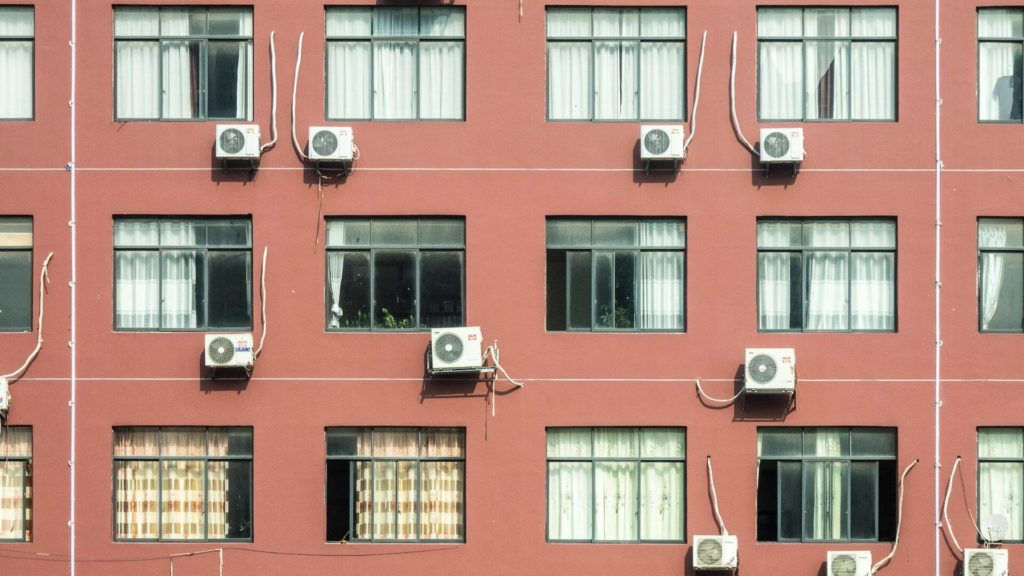Energy Efficiency Policies in Europe’s Warming Climate
Anticipating the rising energy demand for space cooling is crucial in implementing comprehensive energy efficiency policies
With the demand for space cooling in the EU projected to increase by 72% by 2030, there is a pressing need for sustainable ways to keep our buildings cool. Air conditioning units dominate the space cooling market, but the wider deployment of renewable or zero-energy solutions is a necessity in meeting emissions reduction goals within the 2030 timeframe.
REVOLVE spoke to Jean-Sébastien Broc, senior expert at the Institute for European Energy and Climate Policy, about how and why this growing demand should be reflected in energy efficiency policies and regulatory frameworks.
Listen to the full interview:
Why is it important for energy efficiency policies to consider space cooling?
I would not say it has been overlooked in the past – I would say that it’s normal for energy efficiency policies to first target the end uses that represent the largest share of the energy consumption, which explains why most of the energy efficiency policies for buildings are currently focused on space heating. That’s the big share.
However, policies are also meant to anticipate future trends, and that’s where space cooling becomes very important. It’s not even future trends – it’s what’s happening in 2023. We probably all have experienced some heatwaves recently, whatever the countries where you live. So, it means that, at least for a short period of the year, it may trigger peak consumption and peak demand, which can create a number of problems. Especially if it’s not anticipated, then maybe households or tertiary companies will try to equip themselves in a non-optimal way.

That’s why policies are meant to intervene, to provide information and incentives, and to guide either households, companies or public organizations to take the right decisions to find the best solutions according to their situations – and also, hopefully, not to concentrate on air conditioning, which is one of the options but not the only one.
Policies tend to focus on improving energy efficiency, but the priority should be to reduce the need for space cooling.
Maybe, if we would say what could be improved in the current policies, it’s that, due to the energy efficiency scope, they may tend to focus on improving the energy efficiency of cooling devices like air conditioning systems – which is indeed important, but the priority should be to reduce as much as possible the need for space cooling and also to consider the comfort of the users and occupants of the buildings.
What impact would EU citizens experience from the increased access to energy-efficient, sustainable space cooling solutions?
I would say for space cooling, like for many other end-uses, sometimes you start with the idea of reducing energy consumption when you’re reducing energy bills, but most probably that’s not what matters the most to the people, to the occupants of the buildings, to the building owners.
Probably health will be, in the future, the main concern related to summer comfort – also depending on age. Let’s think about the elderly for example. That’s probably one major issue that we will see, and we all know that in Europe, the share of elderly people is growing.
That’s also to say that when considering the policies and the possible impacts for citizens, it’s not only in terms of direct energy impacts or in saving costs on energy bills. It’s also about possible multiple impacts, which can be health, which can be noise if you think about the systems that could be put on the buildings, et cetera. So, there are many issues to consider.
Hopefully, the CoolLIFE project will cover that – maybe not in a comprehensive way, because that’s very difficult, but at least we will be able to provide the most relevant information according to different profiles of users.
If we’re thinking about the long term, how do you hope CoolLIFE can contribute to the increased uptake of sustainable cooling solutions?
I think the first thing that CoolLIFE can bring to the users is to show the diversity of solutions that you can use to ensure some space cooling – or rather, summer comfort – and especially to show that it’s not only about air conditioning. I think that’s the first step.
CoolLIFE can show users that summer comfort is not only about air conditioning.
Then, the project will provide also country-specific information, so information that is more relevant to you, taking into account your climate zone and maybe also the current regulatory framework and so on.
That’s one part, and the other part is combining information from various countries. Ultimately, we will produce recommendations that will build on the experience of the different countries, what has worked, what has not worked, what seems to be good practices, what seems to be better to avoid.
Altogether that should help in knowledge-sharing, identifying the right solutions according to the situations where you are, and also experience-sharing; so that’s more the part about policy: designing the policies in a better way, anticipating and better planning processes, that kind of information.
The CoolLIFE project aims to address the need for sustainable solutions to the EU’s rising demand for space cooling in buildings. The project will develop open-source tools which encourage the consideration of green cooling solutions in public and private decision-making, planning, design, and implementation processes.
